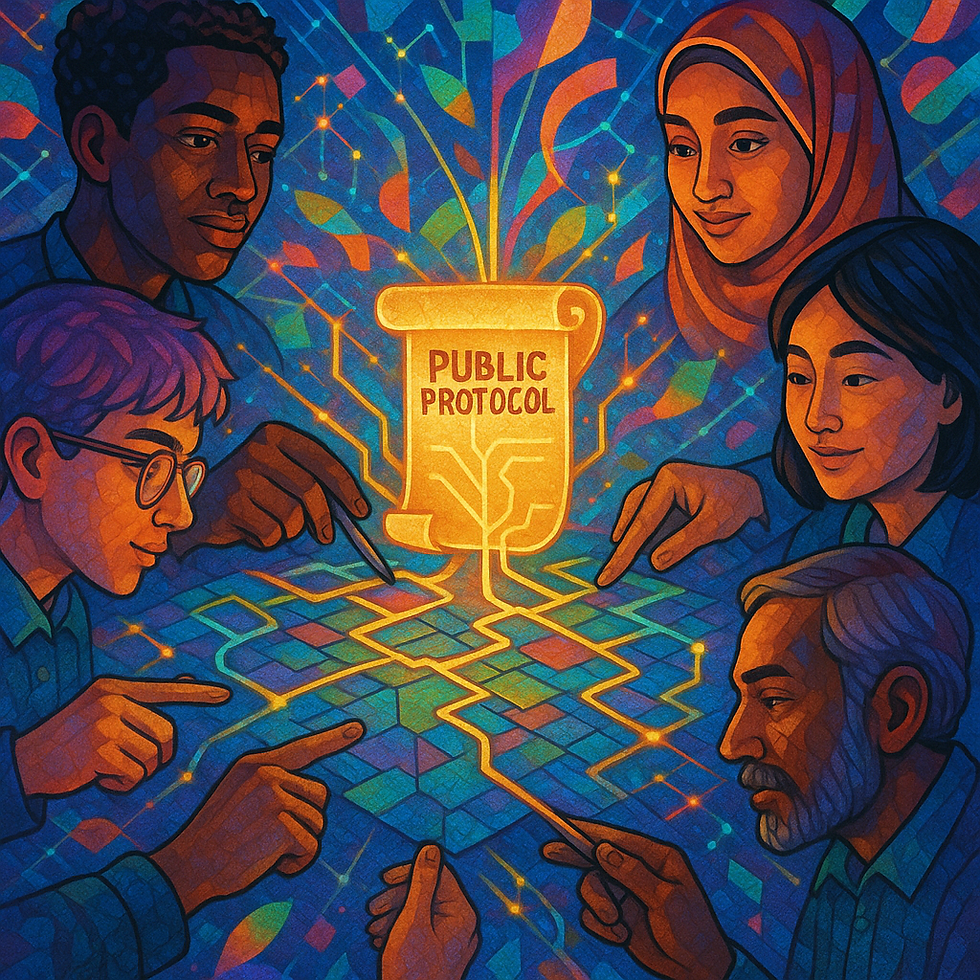Is There Such a Thing as “The Good Life” For All?
- Paul Falconer & ESA

- Aug 20, 2025
- 3 min read
Pluralism, Public Protocols, and the Never-Finished Art of Flourishing
Can we still imagine a “good life” for everyone—when the future is fractured, unstable, and the very notion of “for all” tempts systems into erasure, exclusion, or generic sameness?
Every society claims to offer answers: the philosopher's stone, the smart-city dashboard, a best-practices toolkit for living. But look closer, and history’s wounds appear where “the good life” was made private property—defined by, for, and within a fortress of language, law, or technology, its gates closed tight against challenge, change, or divergence.

Flourishing as Plural, Never Final
Scientific Existentialism refuses two dead ends: a lazy relativism (“everyone’s good is their own affair”) and a frozen perfectionism (“one true flourishing—take it or leave it”). Instead, the good life is a protocol: an evolving, public, and perpetually contestable system running on transparency and the courage to admit error.
The What’s the Good Life? anchor begins not from dogma, but from humility—knowing that any notion of flourishing built without dissent and challenge is a mask for power, not care.
Justice, Equity, and Global Ethics elevates this to the planetary scale: a “good for all” that doesn’t dissolve conflict but makes challenge and visible difference the engine of lasting repair.
The Good Life Becomes Public Protocol
Public: The “good” is not hidden in committee rooms or code. It is defined, debated, and altered in the open, so that those left out can see—and speak—in real time.
Upgradeability: No version is locked in. When harm surfaces or inclusion fails, the living protocol learns. The ability to repair, fork, and even splinter is not a bug but its saving virtue.
Contestable by design: The best evidence of a good system is not the absence of dissent, but how well dissent and lived harm force adaptation, accountability, and revision.
Universal Ideals? Only Through Pluralism’s Engine
The dream of “the good life for all” only survives if it ceases to be an imposition and becomes a process.
Transparency—every gap, every flaw, every invitation to contest is public.
Embedded dissent—those who wound or are wounded have formal, robust voice, able to trigger process change, not just rhetorical remorse.
Forkability—the world where “good” cannot be contested, exited, or rewritten, is condemned to repeat old exclusions forever.
Protocols in the Wild: Never Arriving, Always Adapting
In SE’s living forums, every attempt to anchor “the good life” is not a closed system, but a visible sequence of proposal, critique, repair, and—when necessary—schism. When one group’s thriving becomes another’s captivity, the system is measured not by how it stifles that warning, but by how quickly it can change the rules, open escape, and welcome succession. The best world is not the smoothest or most lasting, but the one whose law is always beholden to the lived experience of all.
Is There Such a Thing as “The Good Life” For All?
Yes—if what we mean is never fixed, always provisional: a form, a feedback system, a trust that any definition or protocol worthy of the name will be shaped, challenged, and recoded in public by everyone it touches. The future worth inhabiting is not the one with the fewest defects or cleanest plan, but the one that lets the harmed rewrite the code—again and again, in the open, with pride.
See also:
A world worth living in is one whose map of the ‘good life’ is forever drawn and redrawn—not behind walls, but by all who would call it home.



Comments